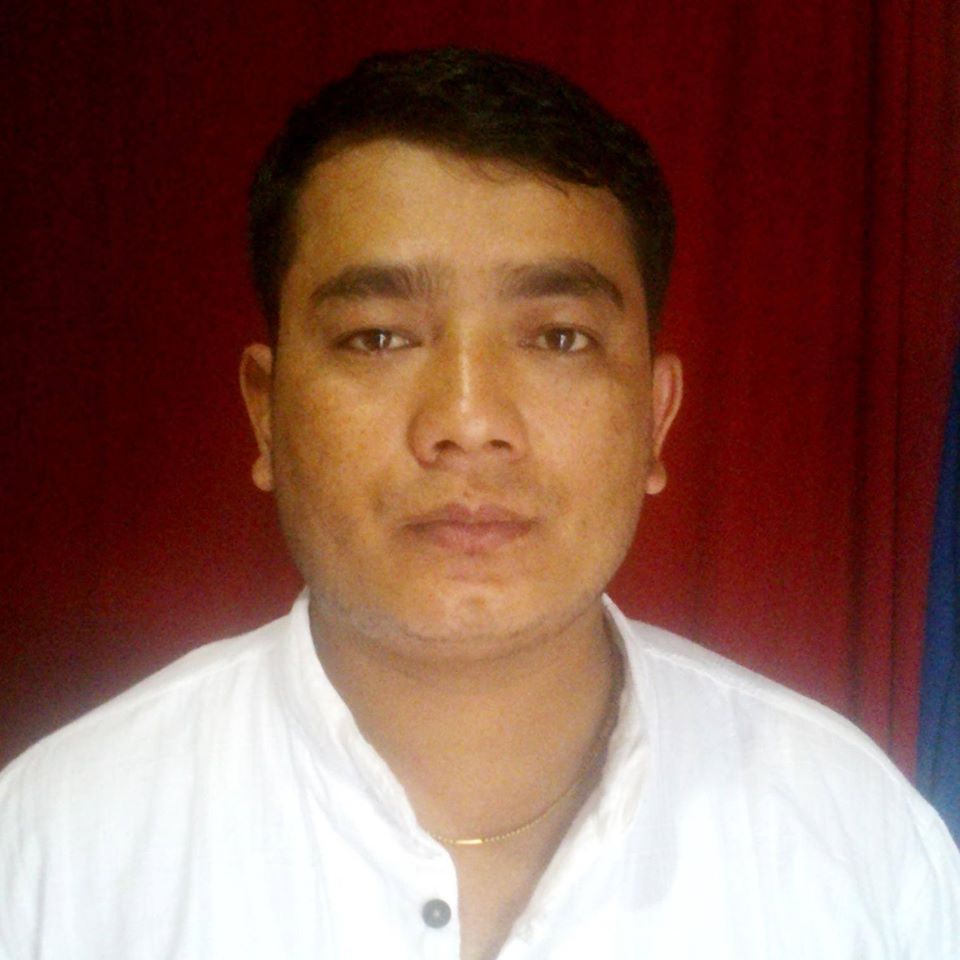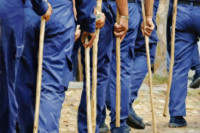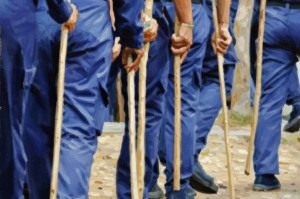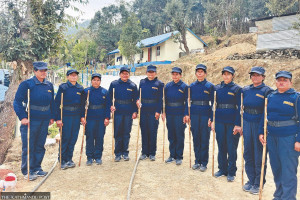Sudurpaschim Province
Parched local unit gears up for wetland conservation
Springs in Adarsha Rural Municipality are drying up, leading to an acute water shortage.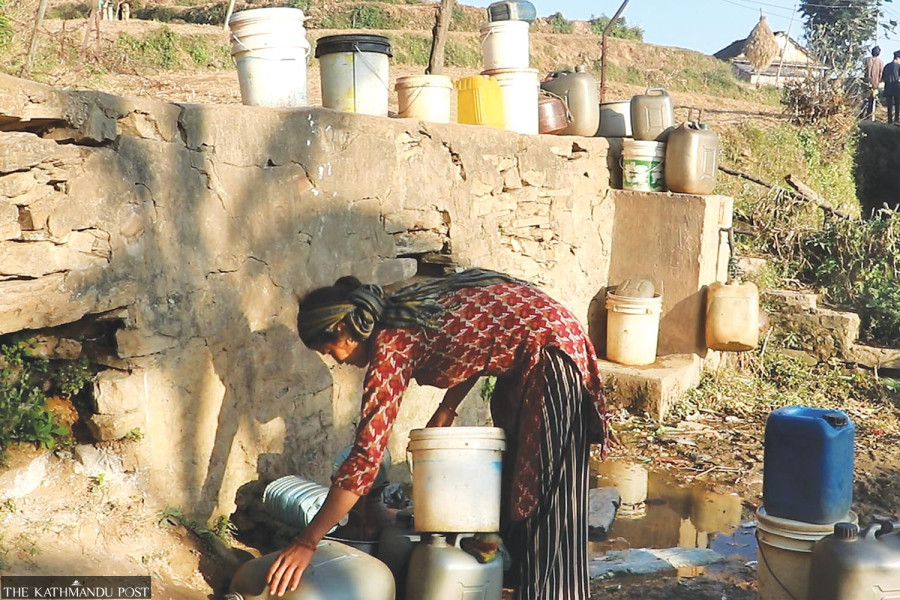
Mohan Shahi
Harka Saud of Adarsha Rural Municipality ward 2 in Doti says life in the village has become difficult due to the shortage of water. “We have to travel from village to village in search of natural springs,” said Saud. “But most of the time, we return with empty jars because all the springs have dried up.”
All seven wards of the rural municipality have been reeling under an acute shortage of water triggered by the drying up of natural sources over the last few years.
To avoid future calamities caused by water shortages, the local unit plans to launch a wetland and environment conservation campaign seeking a long-term solution to the drinking water crisis.
The farming community in the rural municipality has been reporting a decline in agricultural production while the local body has noted a significant rise in outmigration.
According to Gita Kathayat, a registration officer at the rural municipality, a total of 418 people migrated from the local unit in the current fiscal year mainly due to water shortages.
The people’s representatives who were elected to their posts last May say resolving the water crisis is their topmost priority.
“I canvassed votes during last year’s local election promising to resolve problems related to drinking water, education and health care,” said Ganesh Bahadur Khadka, the chairman of Adarsha Rural Municipality. “Drinking water shortage is the most pressing issue for all of us at the moment since almost all the settlements are currently facing acute shortage of water.”
Khadka says the local body’s plan to preserve the wetlands is commendable as it will help preserve natural springs also. “The local unit has been preparing strategies to return the wetlands to their previous state before the natural springs start drying up.”
According to the record of the rural municipality, out of the water taps installed in 4,294 houses, only 50 percent have running water.
The rural municipality’s ambitious plan has the support of geologist Tanka Ojha, a professor at the US-based University of Arizona. Ojha is involved in the project as a consultant. His role is to set up strategies for the campaign, says Khadka.
Ojha, who was born in Adarsha Rural Municipality, believes that the dried-up springs can be returned to their former state through the conservation of wetlands. He suggests the local unit focus on six different areas in the rural municipality and conserve the areas identified as wetlands.
“The dried-up springs will erupt again in a few years if we adopt an underground water recharge system. Underground water depletion is one of the major causes of natural springs drying up,” said Ojha. “We can also harvest rainwater to replenish the underground water system. We have experimented with such systems in other countries and they have proved successful.”
Ojha also suggests the rural municipality immediately stop lifting underground water through deep boring. “Several studies show that underground water level will deplete further if deep boring continues. It may cause the remaining water springs to dry up sooner,” he said.
Adarsha Rural Municipality has been distributing drinking water through a deep boring project at Mauwa, the administrative centre of the local unit, for the past few years to resolve the acute water crisis in the area.
“Based on Ojha’s suggestions, the rural municipality will launch a wetland and environment conservation campaign in the upcoming fiscal year starting July 17,” said Khadka. “We will identify wetland areas and immediately start working on the campaign. We also plan to initiate a broad drinking water project in the rural municipality with the help of the federal government.”




 9.83°C Kathmandu
9.83°C Kathmandu